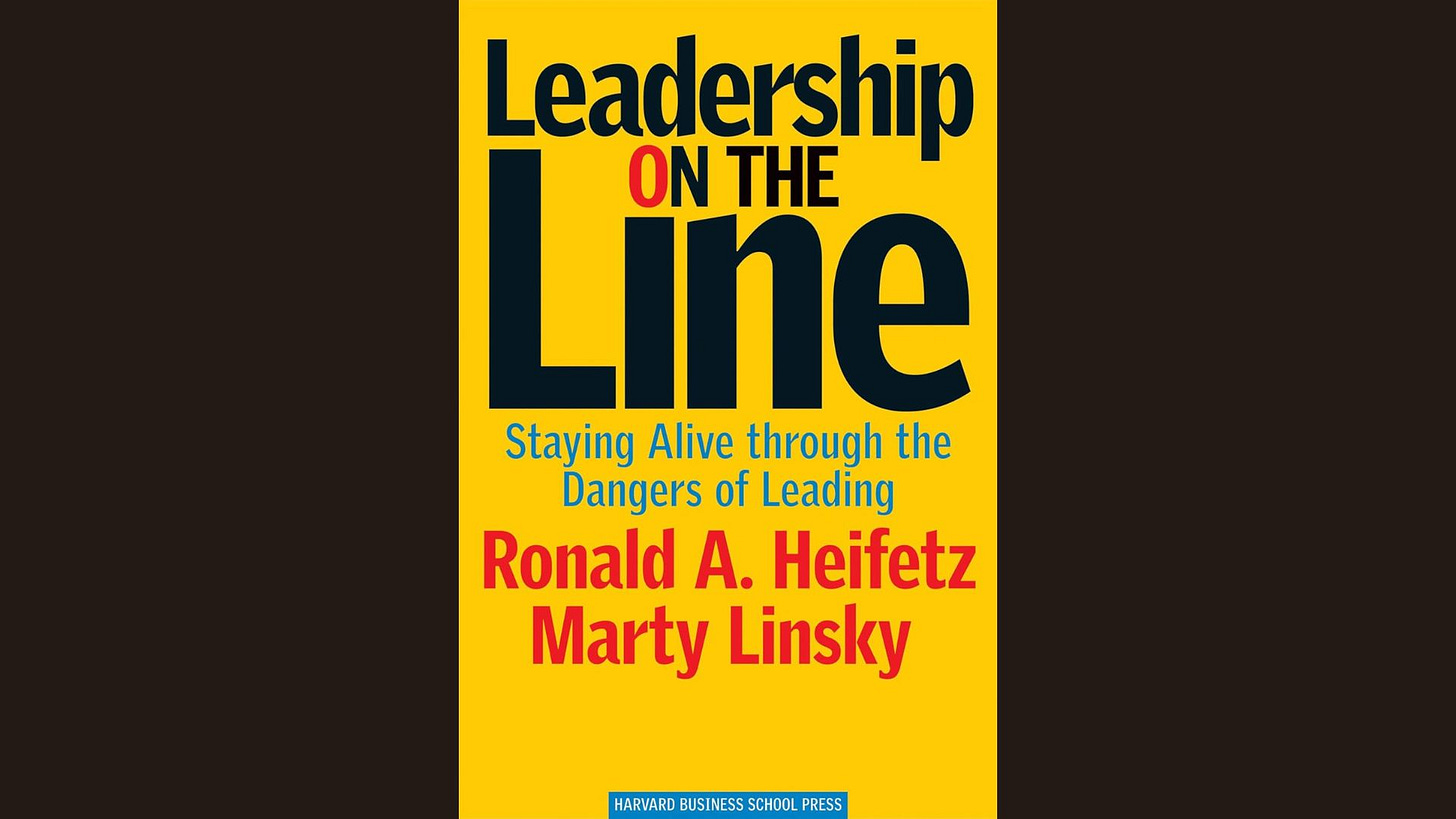Book Byte #305 "Leadership on the Line" by Ronald A. Heifetz & Marty Linsky
Staying Alive Through the Dangers of Change
📣 Curious Quotes from the Author
“Exercising leadership is an expression of your aliveness... But when you cover yourself up, you risk losing something as well. In the struggle to save yourself, you can give up too many of those qualities that are the essence of being alive, like innocence, curiosity, and compassion.”
“People do not resist change, per se. People resist loss. You appear dangerous to people when you question their values, beliefs, or habits of a lifetime. You place yourself on the line when you tell people what they need to hear rather than what they want to hear. Although you may see with clarity and passion a promising future of progress and gain, people will see with equal passion the losses you are asking them to sustain.”
“You appear dangerous to people when you question their values, beliefs, or habits of a lifetime. You place yourself on the line when you tell people what they need to hear rather than what they want to hear. Although you may see with clarity and passion a promising future of progress and gain, people will see with equal passion the losses you are asking them to sustain.”
“leadership requires disturbing people—but at a rate they can absorb.”
“To survive and succeed in exercising leadership, you must work as closely with your opponents as you do with your supporters.”
“Mental health professionals have said for a long time that individuals cannot adapt well to too many life changes at once. If you suffer a loss in the family, change jobs, and move all within a short time, the chances are your own internal stability may break down, or show signs of serious strain.”
“Most people instinctively follow a dominant trend in an organization or community, without critical evaluation of its merits. The herd instinct is strong.”
“The hope of leadership lies in the capacity to deliver disturbing news and raise difficult questions in a way that people can absorb, prodding them to take up the message rather than ignore it or kill the messenger.”
“When you need someone to talk to in difficult times, it’s tempting to try to turn a trusted ally into a confidant as well. Not a good idea.”
“When you lead people through difficult change, you take them on an emotional roller coaster because you are asking them to relinquish something—a belief, a value, a behavior—that they hold dear. People can stand only so much change at any one time.”
📚 Cognition of the Book’s Big Idea
Leadership involves striking a careful balance between promoting change and respecting customs. You have discussed how bringing about adaptive change frequently sparks strong opposition, requiring a reassessment of strongly held values and beliefs. Additionally, you explored the various risks that leaders encounter, such as distraction and marginalization, which can stifle voices that are transformative and steer clear of difficult realities. Despite these difficulties, leaders can effectively navigate by developing a knowledge of these processes, which enables resilient and hopeful transformational and meaningful change to occur.
Until Tomorrow,
Jason (Founder Club255)

